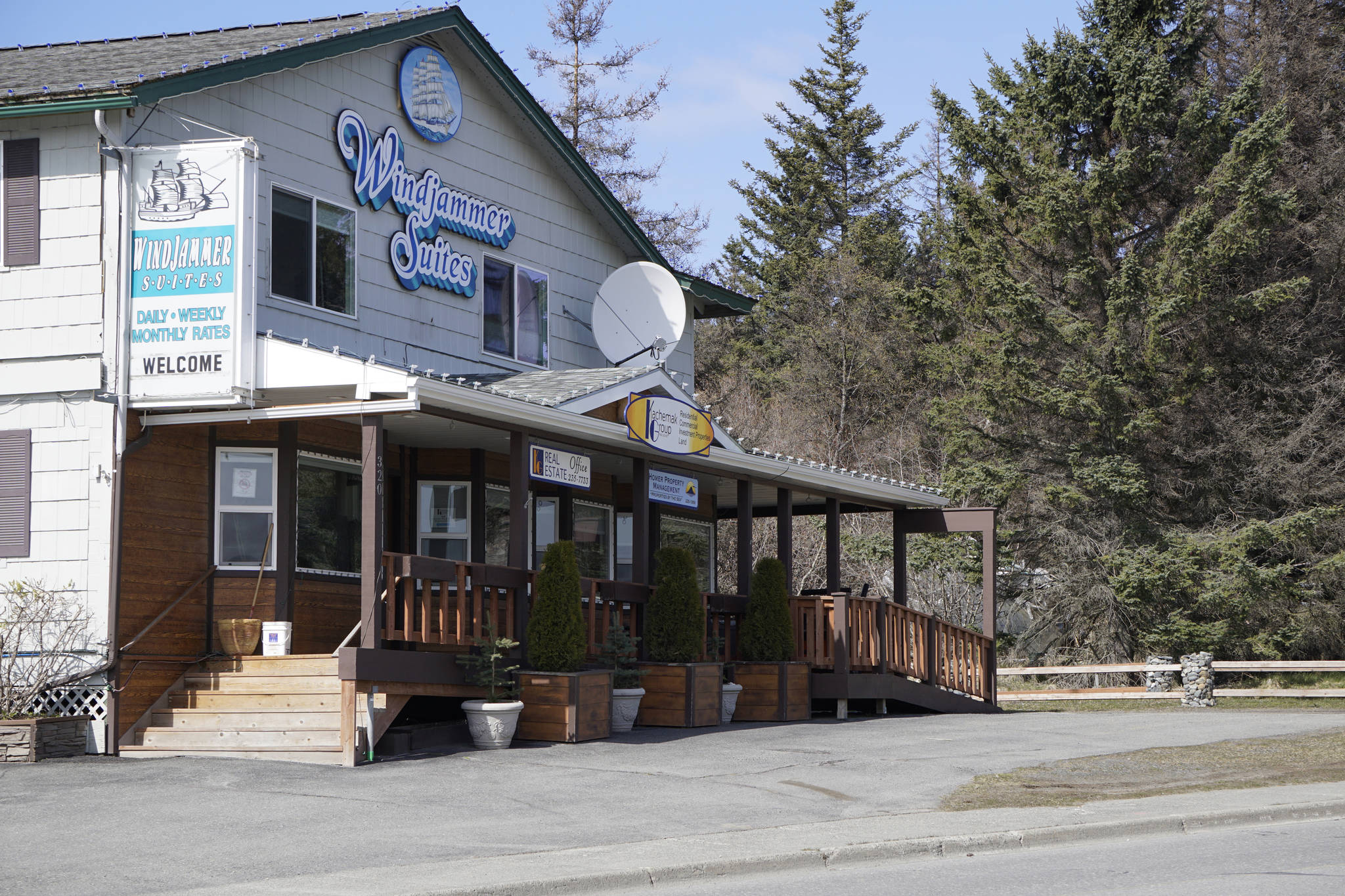A Homer citizen activist has prevailed in an Alaska Supreme Court case asserting he has standing to appeal a 2014 Homer Advisory Planning Commission decision.
In a 4-1 ruling released on April 19, the Alaska Supreme Court wrote that the Homer City Council, acting as the Board of Adjustment, should have granted Frank Griswold standing when he appealed a conditional use permit — that is, he had sufficient grounds to appeal as a property owner in the zoning district.
Homer City Manager Katie Koester on Friday issued a statement in response to the ruling.
“While this is a big change in how standing has been interpreted by the court in the past, the City will be incorporating the court’s interpretation in all of Homer’s pending proceedings,” Koester wrote in an email. “The broad interpretation of standing by the Supreme Court provides needed clarity for the City and the Planning Commission in the future.”
The decision reverses a Superior Court decision that upheld the board’s denial of standing to Griswold and sends his appeal back to the Board of Adjustment for reconsideration. It also vacates an award of $4,733.10 the Superior Court ordered Griswold to pay the city in attorney fees.
Homer city code “requires only that a property owner produce some evidence supporting the owner’s claim that the city’s action could potentially adversely affect the owner’s use or enjoyment of the owner’s property,” Justice Susan Carney wrote in the decision (emphases added). “Griswold met these requirements.”
The case stemmed from a March 2014 application by Terry and Jonnie Yager for a conditional use permit to build a covered porch in the Central Business District that would extend 10 feet into part of a 20-foot setback along Pioneer Avenue at what is now the Kachemak Group Real Estate office in the Windjammer Suites building. At an April 2014 public hearing, Griswold spoke against the conditional use permit application, saying setback exceptions required a variance rather than a conditional use permit, and that city code allowing for setback exceptions conflicted with state law. The planning commission granted the conditional use permit and the Yagers eventually built the covered porch.
Griswold appealed the conditional use permit to the Homer City Council, which acted as the Board of Adjustment. At a September 2014 hearing, then Homer Mayor Beth Wythe considered Griswold’s assertion of standing. Griswold owns property more than 3,000 feet from the Yager property. According to the Supreme Court ruling, at the meeting she read the definition in city code of a “person aggrieved” as someone who shows proof of an adverse impact on “the use, enjoyment, or value of real property owned by that person.” She also said that “an interest that is no different from that of the general public is not sufficient to establish aggrievement.”
According to the Supreme Court ruling, Griswold asserted that as a property owner in the Central Business District, granting the permit would “set a continuing precedent for other properties in the neighborhood.” He argued setbacks provided “adequate open spaces for light and air, prevent undue concentrations of populations, lessen … congestion on streets and highways, preserve and enhance the aesthetic environment of the community.” The board voted and found Griswold had no standing.
Griswold appealed to the Superior Court, but it upheld for the city, saying Griswold was not a “person aggrieved.” It also awarded attorney’s fees to the city, finding Griswold was not a public interest litigant. Griswold represented himself in the court cases.
In its decision, the Alaska Supreme Court interpreted the issue of a “person aggrieved” liberally “in favor of ‘increased accessibility to judicial forums,’” Carney wrote. In an earlier Griswold v. City of Homer decision, the court eliminated taxpayer-citizen standing in land-use cases, but not injury-interest standing. That is, while not just any citizen could assert standing, someone who could assert an injury might have standing.
A property owner would only need to make a minimal showing to qualify as a “person aggrieved,” Carney wrote. The property owner does not have an evidentiary burden, that is, proving beyond a reasonable doubt. The property owner only has to “produce some evidence supporting a claim of impact on real property.” The causation chain also is minimal, showing a potential impact in “use, enjoyment, or value,” Carney wrote.
At the Board of Adjustment hearing, Wythe had asked Griswold to identify proof of adverse impact. The Supreme Court wrote that “the potential impact of building into the reduced setback is some evidence that Griswold, by virtue of his ownership in the zoning district, may suffer diminished enjoyment of his property.”
The court noted the city argued giving Griswold standing would provide standing to any property owner in the district. Because reduced setbacks could harm every property owner in the district, “every property owner in that zoning district does have standing to challenge their legality,” Carney wrote. Preventing judicial redress because the injury might be widespread “is perverse public policy,” she wrote.
Justice Joel Bolger dissented, writing “I am especially concerned about the court’s conclusion that Griswold ‘by virtue of his ownership in the zoning district,’ will suffer recognizable harm from a covered porch more than a half-mile away. … This decision thus invites obstacles to reasonable development proposals, even when the competing interest is very remote or speculative.”
Griswold declined comment on the decision, saying he preferred to do all his talking in court and not in the media.
Reach Michael Armstrong at marmstrong@homernews.com.

